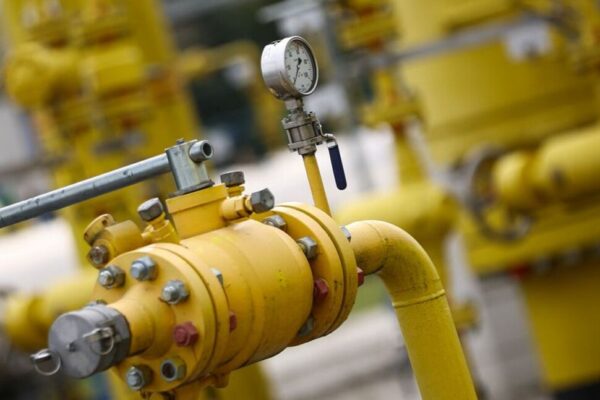Russia’s suspension of herbal fueloline provider to Poland and Bulgaria will now no longer do instant harm to the European economy, however Europe may want to face a pointy slowdown of boom if the cutoff spreads to different nations — or if Europe imposes an embargo on Russian fueloline, economists stated.
Russia’s strugglefare on Ukraine is already rippling via Europe, lashing strength expenses and hurting producers simply because the bloc became getting better from a pandemic-triggered recession. The International Monetary Fund ultimate week reduce its 2022 boom forecast for the nations that use the euro to 2.8%, from a 3.9% estimate in January, with Germany, the biggest economy, taking a huge hit.
The euro fell Wednesday below $1.06 for the primary time in 5 years on growing issues approximately strength safety and a slowdown in European boom. The foreign money has slumped almost 4% in opposition to the U.S. greenback in April alone.
The motion this week via way of means of Gazprom, Russia’s oil monopoly, to show off the fueloline faucets to 2 European Union countries became not going to tip Europe right into a clean recession immediately. This is in element due to the fact Europe “nonetheless has many diplomatic and economic coverage responses available” to fight one, stated Mark Haefele, leader funding officer at UBS, in a be aware to clients.
But the threat of an outright strength strugglefare — consisting of a ability European embargo on Russian fueloline and oil — is looming at a susceptible time. European businesses are already going through better strength charges, which might be threatening income margins and squeezing consumers’ shopping power, analysts stated.
The European Union has been drafting plans for an embargo on Russian oil however made no point out of it withinside the hours after Gazprom’s cutoff. Europe installed region a ban on Russian coal this month. And even as Germany particularly has resisted embargoes on Russian oil or fueloline due to the outsize charges to its industry, officers have lately reconsidered.
“This is a thinly veiled risk to Germany. Berlin is presently weighing how a ways it and the EU can pass in sanctioning Russian strength exports, and the Russian threats are directed to alternate its calculus,” stated Jonathan Hackenbroich, a coverage fellow on the European Council on Foreign Relations.
Still, a complete fueloline cutoff for Germany “might have dire effects for the German and European economies,” he added. “Factories might must cut down manufacturing or maybe close. Some key industries will be misplaced forever, and it’s far in reality difficult to evaluate the whole variety of effects. But Russia is likewise noticeably depending on sales from strength exports, as they constitute its ultimate huge lifeline.”
An embargo on Russian strength is possibly to cause a European recession, and excessive inflation “might turn out to be even better inflation,” stated Carsten Brzeski, international head of studies at ING Bank.
“All of that is sincerely terrible for the short-time period outlook,” he stated. “But to make it worse, excessive strength and commodity expenses and disrupted deliver chains will all positioned Europe’s global competitiveness at risk.”
Germany’s 5 main monetary studies institutes stated this month that a complete strength embargo, had been one to be enacted immediately, might lessen annual monetary boom withinside the European Union this 12 months and the following via way of means of a cumulative 3%, even as elevating inflation via way of means of kind of 1 percent factor in each years.
That is due to the fact herbal fueloline might probable must be rationed as of the begin of subsequent 12 months, and elements of European industry “might then must be switched off for 4 months to allow families to nonetheless warmth their houses at some point of the bloodless season,” stated Holger Schmieding, leader economist at Berenberg Bank.
He stated that it became “as a minimum conceivable” that rationing may want to start even in advance withinside the occasion of a direct Russian fueloline cutoff.
“My nice bet stays that the harm to European boom might be pretty serious,” Schmieding stated. “Whether or now no longer it’d be a rate really well worth paying to constrain the capacity of Russia to maintain an extended strugglefare is in the long run a political judgment that is going nicely past a trifling monetary calculus.”


